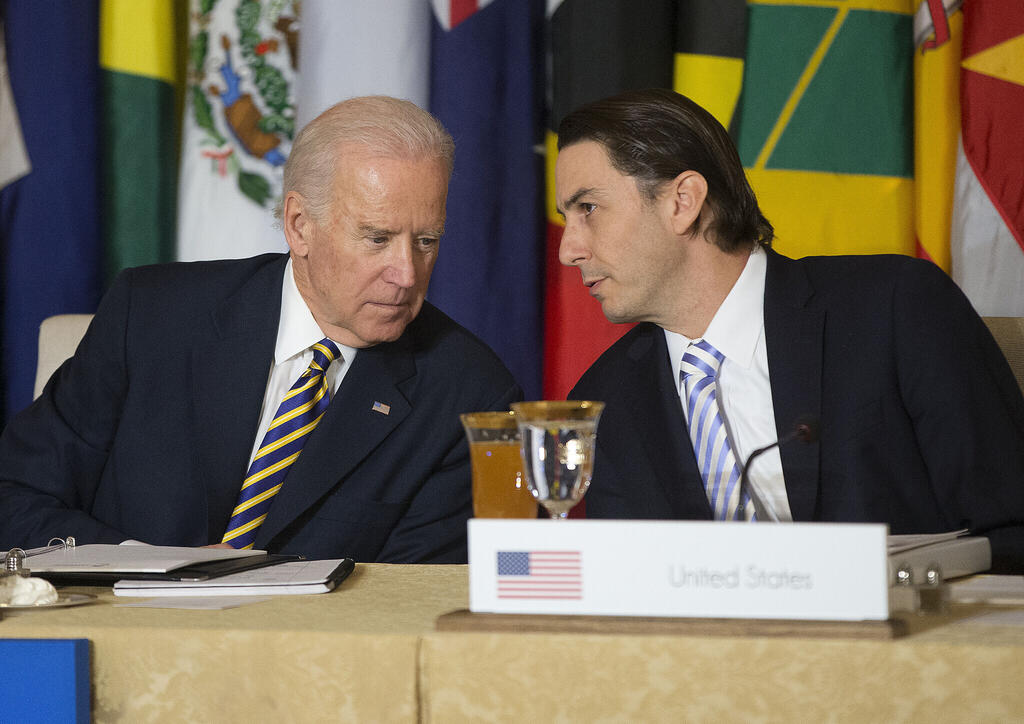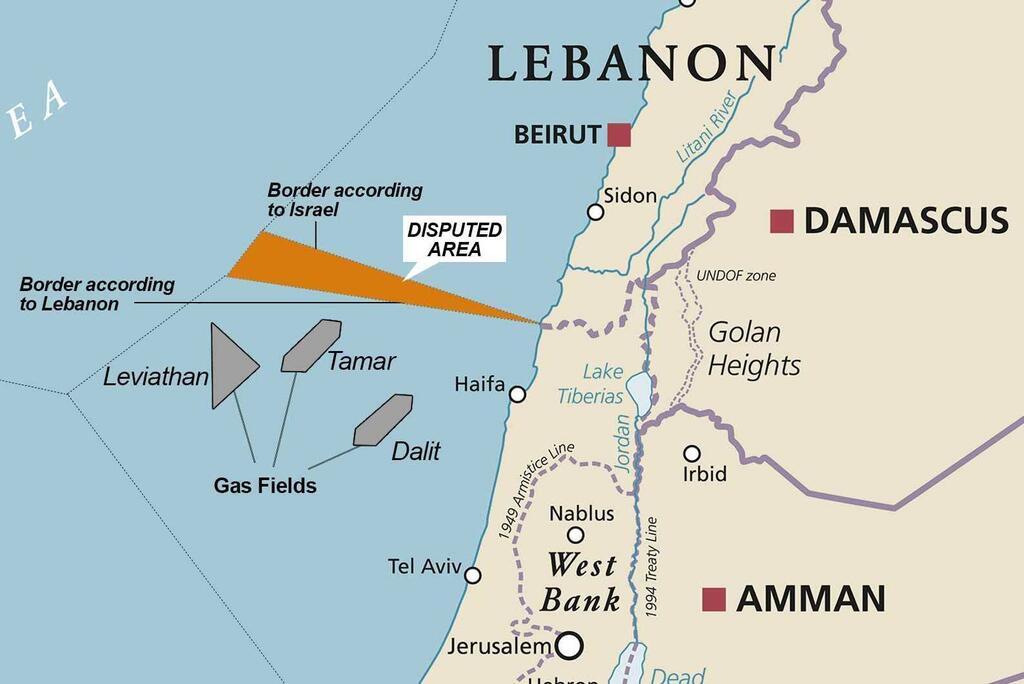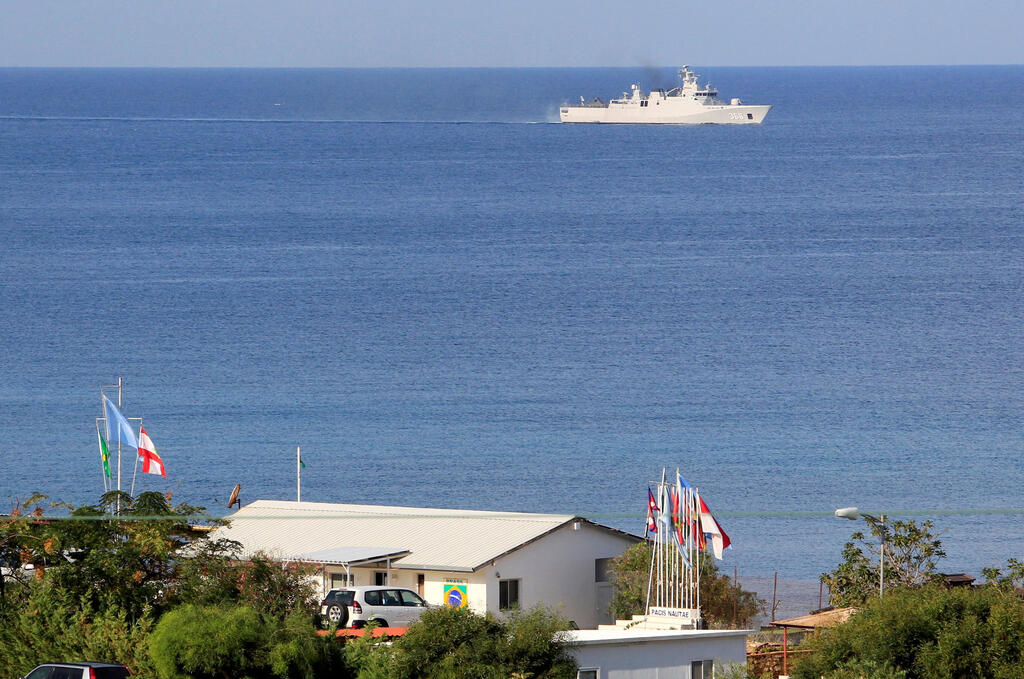Getting your Trinity Audio player ready...
U.S. envoy Amos Hochstein arrived Tuesday in Beirut in a bid to rekindle moribund talks over a maritime border dispute between Lebanon and Israel that is holding up oil and gas explorations.
The newly appointed envoy to the U.S.-mediated talks, a longtime close adviser to President Joe Biden, is also due to tackle Lebanon's dire energy crisis in his meetings.
3 View gallery


Then-U.S. Vice President Joe Biden, left, talks with State Department Special Envoy for International Energy Affairs Amos Hochstein during the Caribbean Energy Security Summit in 2015
(Photo: AP)
Hochstein would "discuss sustainable solutions to Lebanon's energy crisis," a U.S. State Department statement said.
Lebanon is currently grappling with its worst-ever financial crisis, and fuel shortages have ground the country to a halt in recent months.
With a bankrupt state unable to deliver more than an hour or two of mains electricity a day, individuals, businesses and institutions have relied almost entirely on diesel-powered generators.
3 View gallery


A map showing the territorial maritime dispute between Israel and Lebanon
(Photo: Shutterstock)
Rivals Washington and Tehran have in recent weeks appeared to jostle to bring the prime solution to Lebanon's energy crisis.
Iran, impeded by U.S. and other sanctions, sent an oil tanker to Syria and then had its cargo trucked in through an illegal border point to its Lebanese proxy Hezbollah.
The move was seen as a short-term fix with a limited impact on the energy crisis but also as a successful media stunt that goaded Washington into speeding up efforts to come up with alternative solutions.
The U.S. has since been publicly pushing for a regional initiative involving Egypt, Jordan and the World Bank.
3 View gallery


A base for UN peacekeepers of the United Nations Interim Force in Lebanon (UNIFIL) is pictured in Naqoura, near the Lebanese-Israeli border, southern Lebanon
(Photo: Reuters )
"Mr. Hochstein will also underscore the Biden administration's willingness to help Lebanon and Israel find a mutually agreeable solution to their shared maritime boundary for the benefit of both peoples," the U.S. statement said.
Israel and Lebanon had resumed negotiations over their disputed maritime border in 2020 but the process was stalled by Beirut's claim that the map used by the UN in the talks needed modifying.
Lebanese politicians hope that commercially viable hydrocarbon resources off Lebanon's coast could help lift the debt-ridden country out of its economic quagmire.

